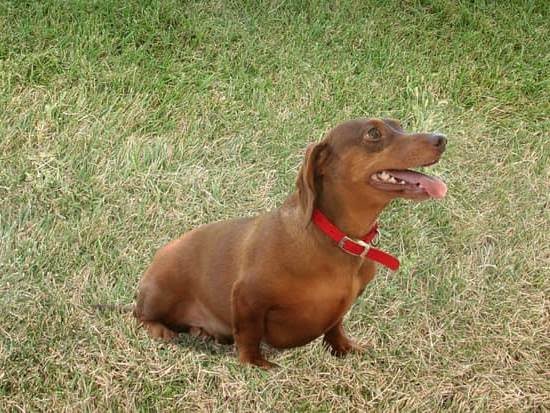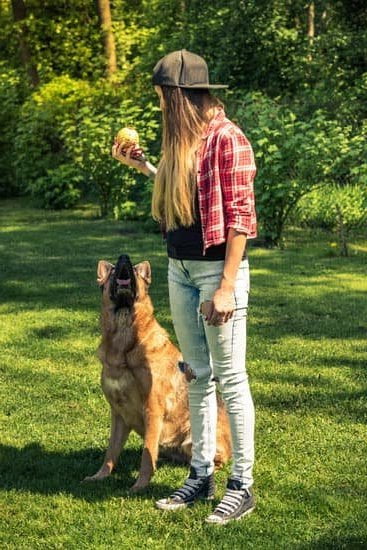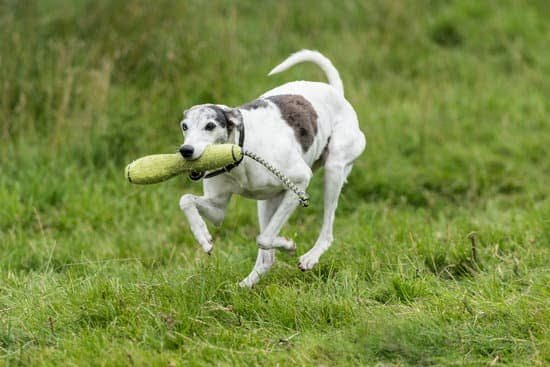Introduction
Begging for food is one of the most common problems experienced by dog owners. It can be embarrassing, annoying, and even dangerous if it leads to an untrained dog jumping up on people or displaying aggressive behavior in an attempt to get food. Fortunately, this issue can typically be addressed with proper training, which involves consistency, patience, and rewards.
Establishing Ground Rules:
The first step in addressing the problem of begging for food is establishing rules that your dog must follow. This could include having them stay seated while you are preparing or eating a meal and being sure to keep any food on higher surfaces away from their reach. Reward your pup for following these rules with praise and treats when needed. If the dog does not follow the rules, firmly reprimand them, but do not resort to physical punishment as this can increase aggressive behaviour.
Redirecting Attention:
When your pup begins begging for food or trying to get your attention by barking or jumping at you, try redirecting their attention by offering a toy that they can play with instead. You may also want to consider teaching them commands such as “sit” or “stay” so that they understand what actions you expect them to take when presented with certain stimuli – such as being near food or when visitors come over that may have snacks available.
Staying Consistent:
Be sure to be consistent in teaching these behaviors; if you allow the behavior one day and then punish the same behavior another day it can confuse your pup and make it harder for them to understand what is expected of them. Once they start understanding what is expected of them (not begging), be sure to reward this behavior whenever it happens and offer different types of rewards such as verbal praise, cuddles and playing games together after meals are finished; this will help reinforce desired behaviors with positive reinforcement rather than punishment.
Express Your Dislike
It is important to establish yourself as the leader in your relationship with your dog, and one way to do this is by expressing clear communication when it comes to begging. Establish a firm set of rules that you will follow and make sure the dog learns them quickly. If the dog starts begging for food at dinner, firmly tell them “no” in a strong voice, accompanied by meaningful body language. Be consistent and do not give in once you have established a rule; if your dog gets a reward every time they beg, they may only become more persistent next time.
When expressing dislike for an action or behavior, it is important that any reprimands that are given be done fairly, positively and consistently. When telling your dog “no” for begging for food, pair the command with positive reinforcement when he follows directions. Show him affection when he stops begging and offers good praise so he associates following instructions with rewards instead of punishment. This will help ensure better results when training your pet and maintain order while teaching acceptable behaviors. Furthermore, it is critical that consistent rules are followed at all times during training as any exceptions or wavering standards could present confusion or frustration on behalf of your pet as their expectations become unclear.
Establish Ground Rules
It’s important to establish ground rules with regards to the begging behavior of your dog. Let your dog know that begging for food is not acceptable by making the expectations clear from the start. For example, make sure your dog knows that he or she is not allowed to go near or beg for food or treats in any area where you are eating. Make sure to give your dog the same message each and every time; be consistent so your pup gets used to it and learns what behavior is accepted in your home. Additionally, don’t leave food around areas where they can be reached easily, such as counters and tables. If they do manage to get ahold of some crumbs or a piece of food laying around, don’t let this become a habit as it will only encourage them to keep on trying.
Reward Good Behavior: Positive Reinforcement
In addition to setting expectations for your pup regarding their begging behavior, you should also reward good behavior when it does occur. Whenever your pup behaves appropriately in relation to begging for food, reward that behavior with positive reinforcement such as verbal praise or physical affection (e.g., petting). Rewarding good behaviors helps reinforce their knowledge that their desired behaviors are acceptable and encourages them to continue adhering to those guidelines in the future.
Using Command Training to Explain New Habits
When training a dog to stop begging for food, it is important to be consistent and remember that dogs learn best through command training. This means that you need to use specific commands each time when trying to teach the dog not to beg. Create a system with words that your dog learns quickly, such as Sit, Lie Down or No. Each time your dog is about to engage in an unwanted behavior remember the words/commands and use them as reminders for the desired behavior.
For example, every time you bring out food and your dog approaches with the intention of begging, calmly say “No” in a firm but calm tone of voice. If they fail to follow, then attend with physical corrective action such as gently pushing them back while still repeating the word “No” until they comply. You can also try distracting them away from their behavior by offering or playing with toys or taking them outside for some exercise.
It is also important to maintain consistency so that your pet understands what is expected of them every time. Schedule when commands are given, have patience when teaching and always provide positive reinforcement by showing affection or giving treats when they behave correctly. With persistent practice and consistency, your pup will eventually be able to understand not to beg for food on their own whenever it comes out!
Training with Distractions
In order to train your dog to stop begging for food, rewards for good behavior are the best way to achieve this. Start by holding a treat in one hand and calling your dog’s name. When your dog responds and approaches, reward him with praise and give him the treat from your hand as a reward. You can also use verbal cues such as “Sit” or “Stay,” as commands to further certify that he understands that food will come only when he listens to your commands. If he begins to beg again, simply take away the treat and ignore him until he learns his lesson.
Next, train your dog while there are distracting noises happening around you such as other pets barking or loud music. This will show your pup that even in difficult situations, the rules remain the same: no begging! Provide treats when they listen and remove them if they disobey. As time goes on, reduce the amount of treats given when they obey — eventually teaching them that good behaviors are their own reward and also working towards controlling calories intake each day.
Finally, prevent begging in daily life by not giving into temptation when your dog stares at you with those big sad eyes or puts on a show with all of their cutest tricks! Allow guests into homes where necessary but be clear about expectations – having treats only come from you and not those who visit. Buying special toys meant only for meal times is helpful too; most dogs love crunchy toys filled with kibbles! Keep consequences consistent each time so that training is progressed effectively without confusing your pet.
Ignoring Unwanted Requests
Begging for food is not a behavior that you want to encourage in your dog. As loving pup owners, we can’t help but share small treats with our furry friends from time to time. However, when it becomes a frequent occurrence, it sets up an unhealthy pattern of expectation. To help break the cycle of begging for food and gain control over the situation, there are a couple of effective steps you can take.
First and foremost, it’s essential to ignore all begging behavior from your dog. If your pup is persistent about asking for something, completely ignore them. Don’t scold them or give them any form of attention – positive or negative – which teaches the dog that if they want your attention they should stop the unwanted request. Secondly, provide consistent reinforcement using positive reinforcement methods like reward-based training and clicker-training (or verbal command) to only give treats when appropriate without making any vocal cues while self-distracting by showing little or no interest in what your pup is doing during times when they may be attempting to beg for food. This helps send the message that only behavior rewarded with your validation and treats will be acceptable at mealtimes and silences any undesirable behaviors like incessant barking or pawing throughout the kitchen/dining area.
Establishing an Alternative Behavior
In an effort to train your dog to stop begging for food, it is important to find an alternative behavior that they can focus on instead of begging. This other behavior should ideally offer them a reward and provide stimulation. For example, teach your pup some simple commands such as “sit”, “lie down” or “leave it”. Every time they do this without asking for food, reward them with a treat or verbal praises. Try changing the routine by using toys for interactive playtime together in order to relieve any boredom and keep them distracted from begging. Additionally, take frequent walks and trips outside so that they can use up energy and be rewarded with fresh smells and sights instead of from food. With consistent repetition and positive reinforcement, these alternative behaviors can replace the habit of begging for food in no time!
Rewarding Good Behavior
One of the best ways to train your dog to stop begging for food is through positive reinforcement. This means rewarding them with treats or praise when they follow commands and behave appropriately. Before you start a training session, make sure that you have plenty of treats on hand and make sure it’s something your dog enjoys. Praise should also be given frequently throughout the session so that your pooch knows they are doing well. Additionally, keep each session brief and fun as too much repetition can cause your pup to become bored and lose focus. Additionally, ensure that the training sessions take place in a quiet area with limited distractions so that your pup has their full attention on you instead of being distracted by other things in the environment. Lastly, always remain patient when teaching your pup new commands, while mistakes may occur along the way, it’s important to acknowledge these mistakes without making bad behavior a habit. With consistency and patience, your dog will soon understand proper behaviors around food and no longer beg for meals!
Creating a Consistent Routine
One of the most important steps to training a dog to stop begging for food is establishing a consistent routine for them. Dogs appreciate and thrive off of structure, so developing daily habits can help teach your pup that certain behaviors are acceptable at certain times. For example, you might set up a specific feeding schedule for meals and snacks, and restrict access to human-made food during other times of the day. This will give your dog the opportunity to understand what is considered an acceptable activity in terms of eating. Additionally, if your pup knows when they are going to get their meal and how much they will be receiving each time, they may be less motivated to beg throughout the day.
Creating clear boundaries is also key; refrain from feeding your dog table scraps or hand-feeding them while eating with family and friends. Not only does this cultivate bad behavior in terms of begging, it also can lead dogs to associate those types of interactions with rewards. If you don’t want your pup near you when you eat, make sure everyone around them follows suit so there isn’t potential for conflicting rules or confusing signals for the animal.
Additionally, positive reinforcement and patience are key when training any pet — it’s important not to become frustrated as consistency over time pays off! Be generous with praise when you see your pup displaying good behavior or following commands; keep in mind that punishment doesn’t breed understanding in these scenarios and can actually cause more confusion or frustration within the animal.
Following Guidance of a Professional Trainer
One of the best ways to train your dog to stop begging for food is to seek assistance from a professional dog trainer. Professional trainers are experienced and well-versed in teaching dogs how to follow commands, as well as how to resist behaviors such as begging. They will provide valuable guidance on how to reinforce desired behavior with rewards and proper discipline. Additionally, they can show you effective methods for correcting unwanted behavior, such as snapping their fingers or clapping your hands when your pup begs or uses a verbal command paired with a hand signal that indicates ‘no’. Additionally, they can recommend appropriate tools like treats or toys that can be used during training. Lastly, they can provide tips on how/when to reward positive behaviors like sitting next to you without jumping up or other forms of desirable conduct. By following the expertise of a professional trainer and giving them plenty of praise and rewards, you will soon be able to train your pup to stop begging for food entirely!
Conclusion
Training your dog to stop begging for food can take some time. Ensure that you are patient and consistent in reinforcing desired behaviors – when your pup does listen to your command, reward them either with their favorite toy, or a treat. It is important that the rewards come quickly after the behavior so that they recognise what they have done right. You should also remain consistent in your expectations with the pup; even if they are only partly obedient, do not give into their demands until they have fully responded to the request. This will help them understand what is required of them when being asked not to beg for food and will make it easier for them to follow direction better in the future.

Welcome to the blog! I am a professional dog trainer and have been working with dogs for many years. In this blog, I will be discussing various topics related to dog training, including tips, tricks, and advice. I hope you find this information helpful and informative. Thanks for reading!





